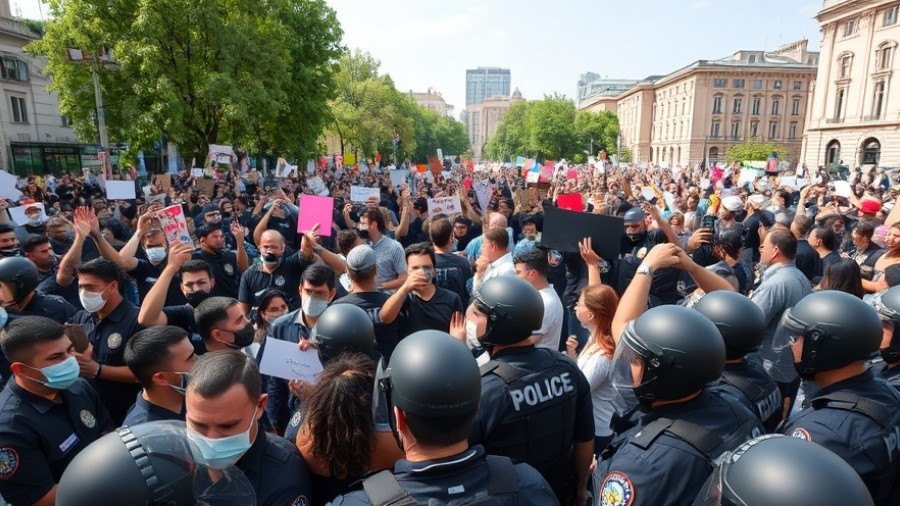
Key Ruling Allows Deployment of National Guard in Portland
A federal appeals court recently determined that President Donald Trump has the authority to deploy National Guard troops to Portland, Oregon, effectively overriding a previous federal district court order that sought to block the deployment. The ruling halts a temporary restraining order imposed by a lower court judge and supports the Justice Department's argument that the presence of these troops is necessary to manage ongoing protests outside an Immigration and Customs Enforcement (ICE) facility in the city.
The 2-1 decision by a panel from the 9th Circuit U.S. Court of Appeals emphasized the President’s statutory power to federalize National Guard forces when federal law enforcement is deemed incapable of ensuring safety. This ruling highlights the complicated dynamic between state and federal powers, particularly in heavily Democratic-led areas like Portland.
The Controversy Surrounding Federal Troops
Local leaders and activists have raised concerns about Trump's deployment of military resources to U.S. cities, arguing that federal intervention is unwarranted. Oregon Attorney General Dan Rayfield labeled the ruling dangerous, asserting it could set a precedent allowing the President to exert unilateral military control with minimal justification. This sentiment echoes in many community discussions, particularly in a region where protests over immigration policies often become heated.
Critics point out that past protests have been largely peaceful, contrasting Trump's descriptions of Portland as a “war ravaged” city. Indeed, police reports show that protests had been comparatively calm prior to the deployment decision, raising questions about the necessity of such extreme measures. This divergence of perspectives highlights the ongoing tensions between constitutional rights and public safety.
The Broader Implications of this Decision
This ruling is not just pivotal for Portland but may also have significant implications for other cities where Trump might deploy National Guard troops amid ongoing unrest. As the Justice Department continues its legal battles, the historical context of military engagements domestically is being scrutinized.
Many are reflecting on past instances where federal troops were deployed under similarly contentious circumstances—highlighting how such actions can disrupt not only local governance but also community trust. There is a palpable concern among taxpayers about the implications of using military resources to manage civil unrest, especially when it intersects with larger issues such as immigration enforcement.
What's Next for Portland and Other Cities?
As the legal landscape surrounding the deployment of National Guard troops unfolds, taxpayers should stay informed about how these decisions affect community dynamics and safety. The case in Portland raises essential questions about governmental power, local autonomy, and the role of the National Guard—a resource meant for state service now being utilized for federal enforcement.
With ongoing protests and the potential for future deployment in other cities, now is a critical time for citizens to engage in discussions around civic responsibility and rights. Observing how local, state, and federal authorities navigate these issues can serve as a reminder of the foundational principles that govern taxpayer rights and freedoms in America.
 Add Row
Add Row  Add
Add 




Write A Comment